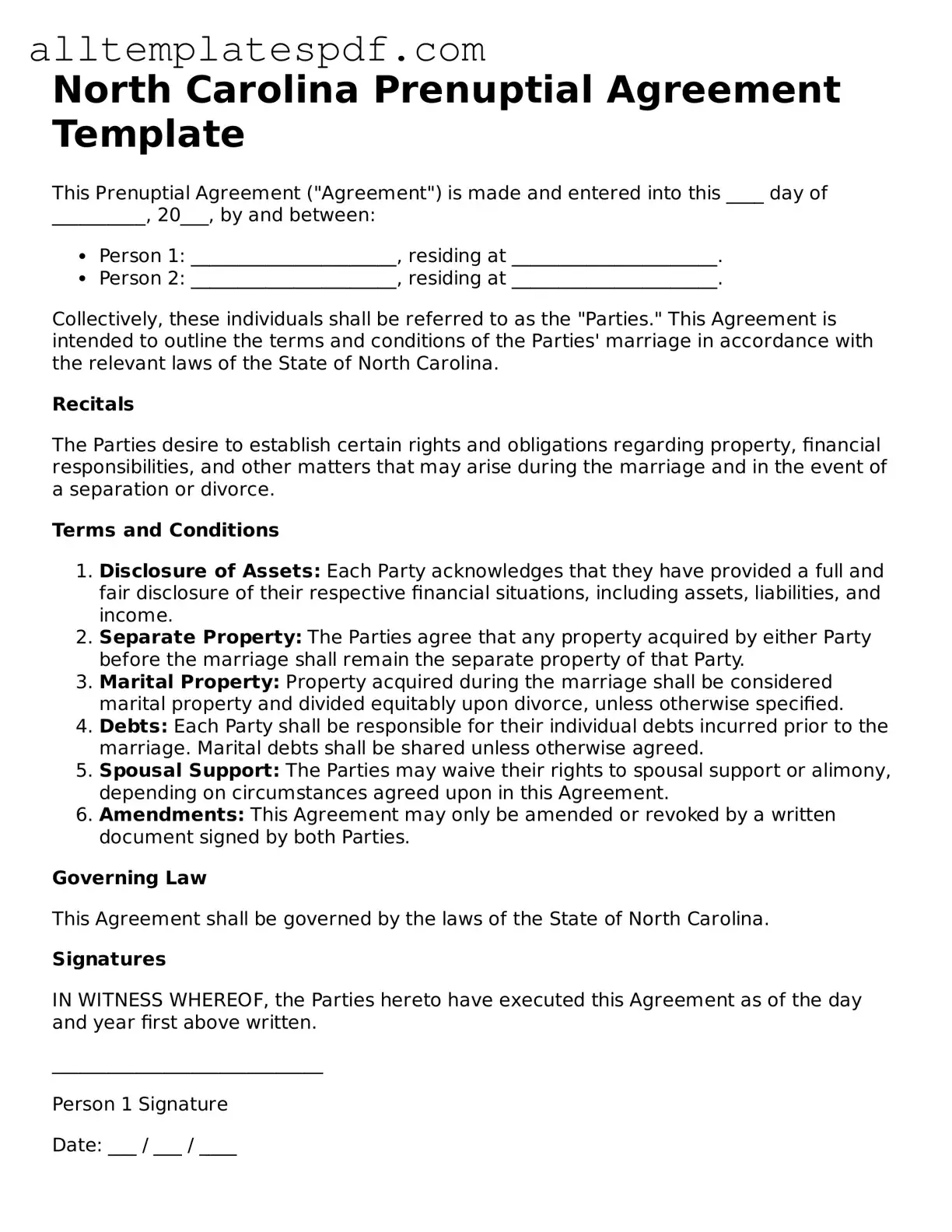Blank Prenuptial Agreement Template for the State of North Carolina
A Prenuptial Agreement form in North Carolina is a legal document that outlines the financial rights and responsibilities of each partner in the event of a divorce or separation. This agreement can help couples clarify their assets and debts, ensuring that both parties understand their financial situation before tying the knot. If you're considering a prenuptial agreement, take the first step by filling out the form below.
Open Editor

Blank Prenuptial Agreement Template for the State of North Carolina
Open Editor
Fast and easy form completion
Complete Prenuptial Agreement digitally — fast and easy.
Open Editor
or
↓ Prenuptial Agreement PDF Form
